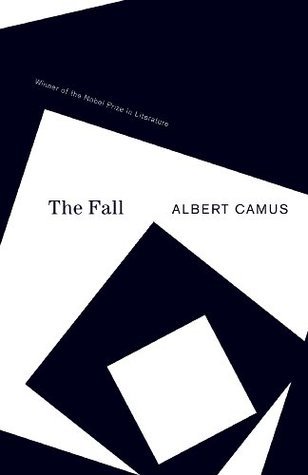The essay Le Mythe de Sisyphe (The Myth of Sisyphus), 1942, expounds Camus’s notion of the absurd and of its acceptance with “the total absence of hope, which has nothing to do with despair, a continual refusal, which must not be confused with renouncement – and a conscious dissatisfaction”. Meursault, central character of L’Étranger (The Stranger), 1942, illustrates much of this essay: man as the nauseated victim of the absurd orthodoxy of habit, later – when the young killer faces execution – tempted by despair, hope, and salvation. Dr. Rieux of La Peste (The Plague), 1947, who tirelessly attends the plague-stricken citizens of Oran, enacts the revolt against a world of the absurd and of injustice, and confirms Camus’s words: “We refuse to despair of mankind. Without having the unreasonable ambition to save men, we still want to serve them”. Other well-known works of Camus are La Chute (The Fall), 1956, and L’Exil et le royaume (Exile and the Kingdom), 1957. His austere search for moral order found its aesthetic correlative in the classicism of his art. He was a stylist of great purity and intense concentration and rationality.
Books

The Fall
Jean-Baptiste Clamence, a successful Parisian barrister, has come to recognize the deep-seated hypocrisy of his existence. His epigrammatic and, above all, discomforting monologue gradually saps, then undermines, the reader’s own complacency.

The Plague
A gripping tale of human unrelieved horror, of survival and resilience, and of the ways in which humankind confronts death, The Plague is at once a masterfully crafted novel, eloquently understated and epic in scope, and a parable of ageless moral resonance, profoundly relevant to our times. In Oran, a coastal town in North Africa, the plague begins as a series of portents, unheeded by the people. It gradually becomes a omnipresent reality, obliterating all traces of the past and driving its victims to almost unearthly extremes of suffering, madness, and compassion.

The Stranger
Through the story of an ordinary man unwittingly drawn into a senseless murder on an Algerian beach, Camus explored what he termed “the nakedness of man faced with the absurd.” First published in English in 1946; now in a new translation by Matthew Ward.
The only way to deal with an unfree world is to become so absolutely free that your very existence is an act of rebellion.
Should I kill myself, or have a cup of coffee?
In the depth of winter, I finally learned that within me there lay an invincible summer.
Man is the only creature who refuses to be what he is.
Don’t walk in front of me… I may not follow
Don’t walk behind me… I may not lead
Walk beside me… just be my friend
You will never be happy if you continue to search for what happiness consists of. You will never live if you are looking for the meaning of life.
Nobody realizes that some people expend tremendous energy merely to be normal.
Live to the point of tears.

 Albert Camus (1913-1960) was a representative of non-metropolitan French literature. His origin in Algeria and his experiences there in the thirties were dominating influences in his thought and work. Of semi-proletarian parents, early attached to intellectual circles of strongly revolutionary tendencies, with a deep interest in philosophy (only chance prevented him from pursuing a university career in that field), he came to France at the age of twenty-five. The man and the times met: Camus joined the resistance movement during the occupation and after the liberation was a columnist for the newspaper Combat. But his journalistic activities had been chiefly a response to the demands of the time; in 1947 Camus retired from political journalism and, besides writing his fiction and essays, was very active in the theatre as producer and playwright (e.g., Caligula, 1944). He also adapted plays by Calderon, Lope de Vega, Dino Buzzati, and Faulkner’s Requiem for a Nun. His love for the theatre may be traced back to his membership in L’Equipe, an Algerian theatre group, whose “collective creation” Révolte dans les Asturies (1934) was banned for political reasons.
Albert Camus (1913-1960) was a representative of non-metropolitan French literature. His origin in Algeria and his experiences there in the thirties were dominating influences in his thought and work. Of semi-proletarian parents, early attached to intellectual circles of strongly revolutionary tendencies, with a deep interest in philosophy (only chance prevented him from pursuing a university career in that field), he came to France at the age of twenty-five. The man and the times met: Camus joined the resistance movement during the occupation and after the liberation was a columnist for the newspaper Combat. But his journalistic activities had been chiefly a response to the demands of the time; in 1947 Camus retired from political journalism and, besides writing his fiction and essays, was very active in the theatre as producer and playwright (e.g., Caligula, 1944). He also adapted plays by Calderon, Lope de Vega, Dino Buzzati, and Faulkner’s Requiem for a Nun. His love for the theatre may be traced back to his membership in L’Equipe, an Algerian theatre group, whose “collective creation” Révolte dans les Asturies (1934) was banned for political reasons.